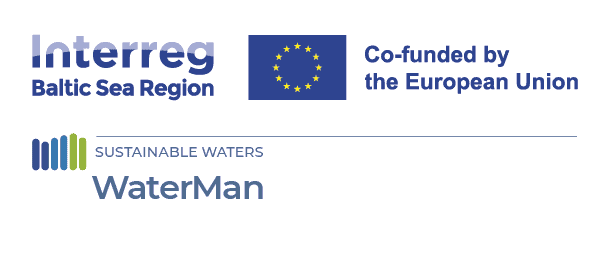
Promoting water reuse in the Baltic Sea Region through capacity building at local level
WaterMan
WaterMan - Hamburg, September 18-19, 2024
25 September 2024
On September 18-19, 2024, the WaterMan project meeting took place in Hamburg, focusing on key issues related to water management and sustainable use of water in the Region of the Baltic Sea. The event brought together partners from several countries who discussed ways to optimize water management processes, including water reuse, and the role of public engagement in implementing environmental projects.
Day 1: Strategy Presentation and Stakeholder Dialogue
The first day began with a welcome from Mr Tobias and Mr Jens. The discussion centred around contemporary challenges related to flooding, in particular, the current situation in Switzerland and Poland was mentioned, where many towns were flooded. The plan for the two-day event was presented, covering topics such as central support for local activities, study presentations, and discussions on “ex-ante” evaluations of strategy models. A key issue was analyzing how to best use available funds and how to connect water management strategies with awareness-raising activities. In the afternoon session, the focus shifted to stakeholder dialogue and awareness-raising issues. Experts from the University of Bremen presented research findings on public participation in various fields, including water management. They shared examples of sustainable development and the circular economy, emphasizing the importance of engaging citizens in decision-making processes at the local level.Day 2: Study Visit and Further Discussions
The second day began with a study visit to one of Hamburg’s “living labs,” where large-scale rainwater management systems have been implemented. Participants had the opportunity to see how these innovative solutions work in practice. After returning, discussions continued on the “Water Reuse Toolbox,” tools that enable the reuse of water, a key element of the project. There was also a discussion of the planned case studies in Belgium and the Netherlands, scheduled for January 2025.Key Conclusions from the Meeting:
-
- Integration of Strategies with Public Engagement: It was emphasized that water management strategies cannot operate in isolation from the region’s residents. Engaging local communities in decision-making processes contributes to greater acceptance and the effectiveness of implemented solutions.
-
- Modern Water Management Methods: The Hamburg meeting showcased that innovative water management systems, such as rainwater reuse in residential construction, can be implemented on a large scale. An example is the Hamburg model, where rainwater management systems were introduced in residential areas.
-
- International Cooperation: Project participants from various countries, including Germany, Sweden, Poland and Latvia, shared experiences on local strategies. These discussions helped identify further actions to improve water management at the regional level.
-
- The Importance of Education and Communication: The need to disseminate knowledge and build awareness of water issues, not only among experts but also the general public, was also discussed. Projects like WaterMan must reach a wider audience through educational campaigns and media cooperation.





